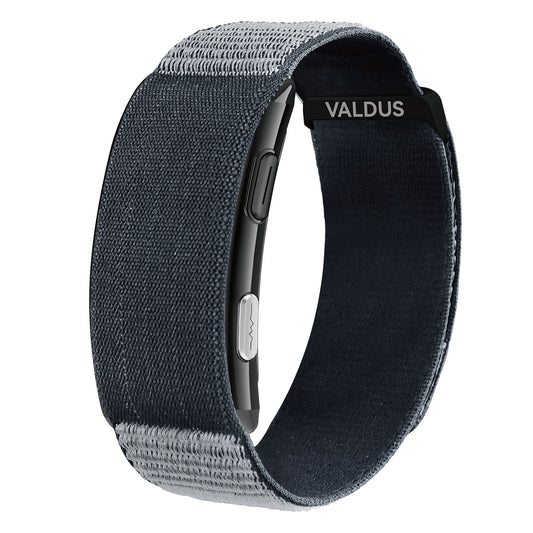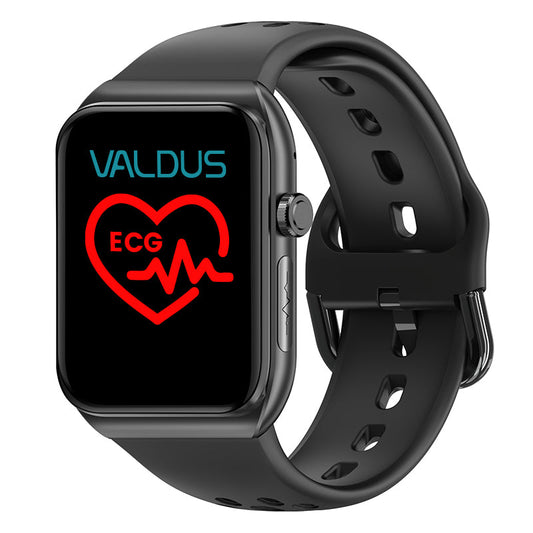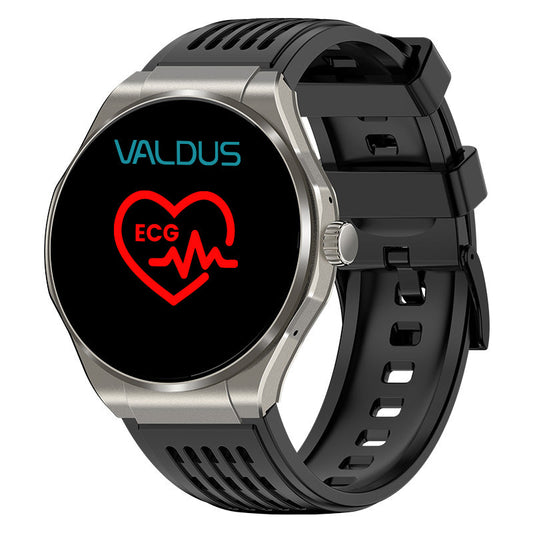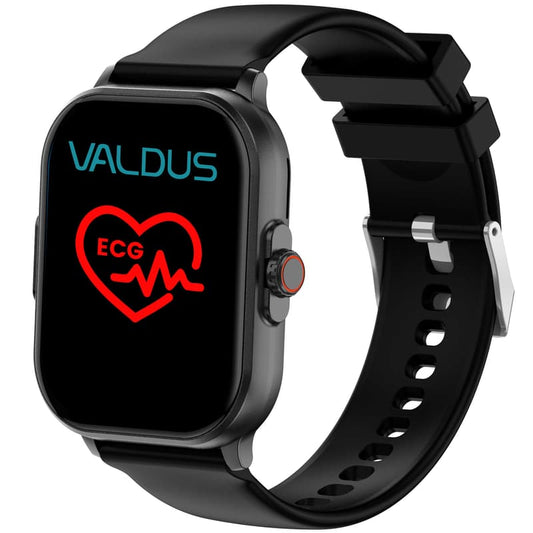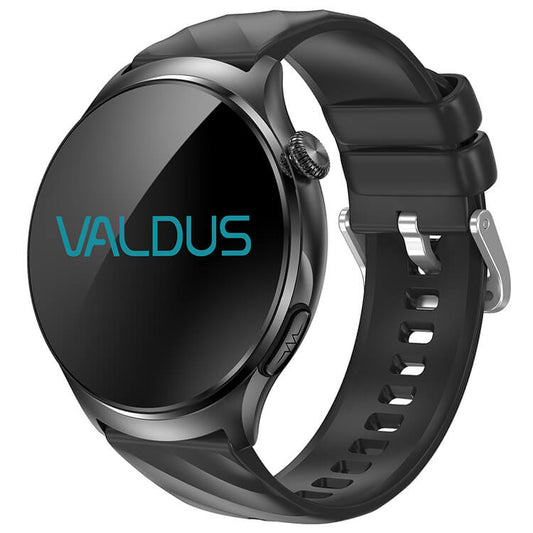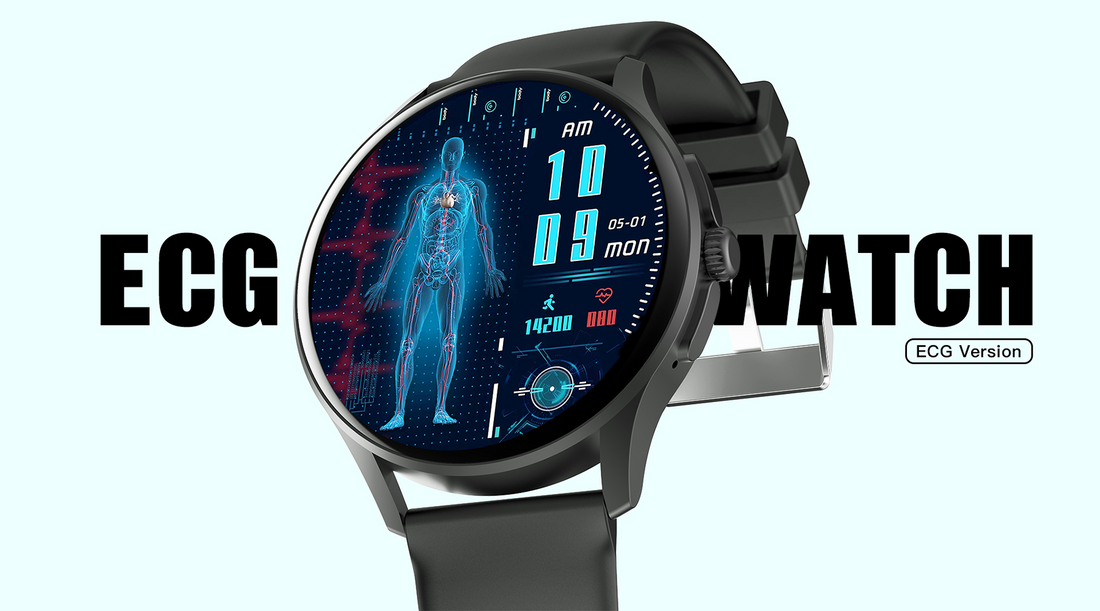
Your Wrist, Your Health: Why ECG Smartwatches Are the Future
Share
Introduction: The Evolution of Wrist Health Monitoring
In recent years, the integration of health monitoring with everyday technology has seen unprecedented growth. What was once the domain of specialized medical equipment has now found its way onto our wrists in the form of smartwatches. These sleek devices are not only capable of tracking our steps, calories, and sleep patterns but are now equipped with advanced features like Electrocardiogram (ECG) monitoring. The convergence of health and technology on such a personal level has sparked a revolution in how we approach our well-being.
The Rise of Wearable Technology
Wearable technology has evolved rapidly, from basic fitness trackers to sophisticated health monitoring systems. The proliferation of these devices is due in part to their increasing capabilities and the growing awareness of the importance of personal health management. As smartwatches have become more advanced, they've begun to serve as critical tools for managing and monitoring one's health, offering a blend of convenience, style, and medical utility.
What Is an ECG? Understanding the Basics
An Electrocardiogram (ECG or EKG) is a test that records the electrical activity of the heart over a period. Traditionally, this test required a visit to a healthcare facility, where electrodes would be placed on the skin to measure heart activity. The data from an ECG can reveal a lot about the heart's rhythm and function, making it a vital tool in diagnosing conditions like arrhythmias, heart attacks, and other cardiac disorders. The incorporation of this technology into smartwatches allows users to monitor their heart health continuously and more conveniently than ever before.
How ECG Smartwatches Work: A Closer Look
ECG smartwatches are equipped with sensors on the back of the watch and sometimes on the sides, where they make contact with the wrist. When a user activates the ECG function, the watch measures the electrical signals generated by the heart. Typically, users need to place a finger on the watch's crown or another designated sensor to create a circuit, allowing the watch to record the heart's electrical activity.
The data collected is then analyzed by the watch's built-in software, which can detect irregular heartbeats and other anomalies. This information can be stored on the watch, synced to a smartphone, or even sent directly to healthcare providers. The real-time feedback and alerts provided by ECG smartwatches make them invaluable tools for anyone concerned about their heart health.
The Benefits of ECG Smartwatches
1. Continuous Health MonitoringOne of the most significant advantages of ECG smartwatches is their ability to provide continuous health monitoring. Unlike traditional ECG tests, which are typically performed in a clinical setting, ECG smartwatches allow users to monitor their heart activity at any time, whether they're at home, at work, or on the go. This continuous monitoring can help detect issues early, potentially preventing more severe health problems.
2. Early Detection of Heart ConditionsEarly detection of heart conditions is crucial for effective treatment. ECG smartwatches can identify signs of arrhythmias, such as atrial fibrillation (AFib), which might go unnoticed without regular monitoring. By providing users with timely alerts about potential issues, these devices empower individuals to seek medical attention before a condition worsens.
3. Fitness and Well-being InsightsBeyond heart health, ECG smartwatches offer a wealth of fitness and well-being insights. They can track physical activity, monitor stress levels, and even provide breathing exercises to help manage stress. This holistic approach to health makes these watches essential for those looking to maintain or improve their overall well-being.
4. Peace of Mind for UsersFor many, the peace of mind that comes from knowing their heart health is being monitored continuously is invaluable. ECG smartwatches provide users with a sense of security, especially for those with a history of heart conditions or those at risk. The ability to detect and act on health issues promptly can significantly reduce anxiety and improve quality of life.
ECG Smartwatches vs. Traditional ECG Devices
1. Portability and Convenience
Traditional ECG devices, while accurate and reliable, are bulky and require a clinical setting for operation. ECG smartwatches, on the other hand, are portable and can be worn like any other watch. This portability allows for continuous monitoring, which can capture data that a traditional ECG might miss due to its limited testing duration.
2. Accessibility for the General Public
ECG smartwatches have made heart monitoring accessible to the general public. No longer do individuals need to visit a clinic or hospital for a basic ECG; they can now monitor their heart from the comfort of their home. This accessibility is particularly beneficial for people living in remote areas or those with limited access to healthcare facilities.
3. Cost-Effectiveness
While traditional ECG tests can be expensive, especially without insurance, ECG smartwatches offer a more cost-effective solution for continuous monitoring. The initial investment in a smartwatch might seem high, but it can pay off in the long run by reducing the need for frequent medical tests and visits.
Popular ECG Smartwatch Models
1. Apple Watch Series
The Apple Watch is perhaps the most well-known ECG smartwatch on the market. With its seamless integration with the iPhone and other Apple devices, it offers users an intuitive and reliable health monitoring experience. The ECG feature is FDA-approved, making it a trusted tool for heart health monitoring.
2. Samsung Galaxy Watch
Samsung's Galaxy Watch series also includes ECG functionality, providing Android users with a powerful health monitoring tool. Like the Apple Watch, it offers a comprehensive range of health and fitness features, making it a popular choice among smartwatch users.
3. Fitbit Sense
Fitbit Sense is another strong contender in the ECG smartwatch market. Known for its emphasis on health and fitness, the Sense model includes ECG monitoring alongside other advanced health features like stress management and skin temperature tracking.
4. Withings ScanWatch
The Withings ScanWatch stands out for its hybrid design, combining a traditional watch face with modern health-tracking capabilities. Its ECG feature is clinically validated, and it offers long battery life, making it a great option for users who prefer a classic watch look with modern functionality.
ECG Smartwatches in Professional Healthcare
1. Integration with Medical Records
ECG smartwatches are increasingly being integrated with electronic health records (EHRs). This integration allows healthcare providers to access a patient's ECG data remotely, enabling better-informed decisions and more personalized care. Patients can share their data with doctors during consultations, providing a more comprehensive picture of their heart health.
2. Enhancing Telemedicine
The rise of telemedicine has made ECG smartwatches even more valuable. During virtual consultations, patients can share real-time ECG data with their healthcare providers, allowing for more accurate diagnoses and treatment plans. This capability is particularly useful for those who cannot visit a clinic easily or prefer the convenience of remote consultations.
3. Collaboration Between Patients and Doctors
ECG smartwatches foster better collaboration between patients and doctors. Patients become more engaged in their health, actively monitoring their condition and sharing relevant data with their healthcare providers. This collaborative approach can lead to earlier interventions and more effective management of heart conditions.
Future Developments in ECG Smartwatches
1. Improved Accuracy and Sensitivity
As technology advances, we can expect ECG smartwatches to become even more accurate and sensitive. Future models may include enhanced sensors that provide more detailed heart readings, improving the detection of subtle anomalies that current technology might miss.
2. Broader Health Monitoring Features
The future of ECG smartwatches likely includes broader health monitoring features. These devices may expand beyond heart health to monitor other vital signs like blood pressure, glucose levels, and oxygen saturation, making them even more indispensable for overall health management.
3. AI and Predictive Analysis
Artificial Intelligence (AI) is poised to play a significant role in the future of ECG smartwatches. By analyzing large datasets from users, AI can identify patterns and predict potential health issues before they become serious. This predictive analysis could revolutionize how we approach preventive healthcare, providing users with actionable insights and personalized health recommendations.
Challenges and Limitations of ECG Smartwatches
1. Data Privacy Concerns
As with any technology that collects personal data, ECG smartwatches raise concerns about privacy. The sensitive health information these devices gather needs to be securely stored and transmitted to protect users from data breaches. Ensuring robust privacy measures is crucial as these devices become more widespread.
2. Battery Life and Wearability
Despite their many benefits, ECG smartwatches face challenges related to battery life and wearability. Continuous monitoring requires significant power, which can drain the battery quickly. Manufacturers are continually working to improve battery efficiency, but users must still balance the need for continuous monitoring with the practical limitations of their device's battery life.
3. Dependence on Technology
While ECG smartwatches offer unprecedented convenience, they also foster a dependence on technology. Users might become overly reliant on their devices for health monitoring, potentially overlooking other important aspects of their well-being. It’s important to use these tools as part of a broader health management strategy, rather than a sole solution.
ECG Smartwatches and Lifestyle Integration
1. Encouraging Active Living
ECG smartwatches encourage active living by providing users with real-time feedback on their physical activity. Many models include features like step counting, exercise tracking, and even workout suggestions based on heart rate data. This integration of health monitoring with fitness tools motivates users to stay active and maintain a healthy lifestyle.
2. Health Awareness and Education
By wearing an ECG smartwatch, users become more aware of their health and are often more motivated to make healthier choices. These devices provide valuable insights that can educate users about their heart health, stress levels, and overall well-being, leading to better-informed decisions and a proactive approach to health management.
Real-Life Stories: Impact of ECG Smartwatches
The impact of ECG smartwatches on individuals’ lives is profound. There are numerous stories of users who have discovered serious heart conditions through the use of their smartwatch, allowing them to seek timely medical intervention. These real-life examples underscore the life-saving potential of this technology, proving that these devices are not just gadgets, but vital tools for health and wellness.
How to Choose the Right ECG Smartwatch for You
1. Key Features to Consider
When choosing an ECG smartwatch, consider the key features that matter most to you. This might include the accuracy of the ECG readings, the availability of other health monitoring tools, and the overall ease of use. Look for models that offer a good balance of functionality and user-friendliness.
2. Budget and Value for Money
ECG smartwatches range widely in price, so it’s important to find one that fits your budget while still offering the features you need. Consider the long-term value of the device, including its durability, software updates, and compatibility with other health tracking tools you may use.
3. Compatibility with Other Devices
Ensure that your chosen ECG smartwatch is compatible with your other devices, such as your smartphone or fitness apps. Seamless integration can enhance your overall user experience, making it easier to sync data, set health goals, and track progress.
FAQs: Everything You Need to Know About ECG Smartwatches
How accurate are ECG smartwatches compared to traditional ECG machines?
ECG smartwatches are generally accurate but may not match the precision of traditional ECG machines used in clinical settings. However, they are highly effective for continuous monitoring and detecting irregularities early.
Can an ECG smartwatch detect a heart attack?
While ECG smartwatches can detect irregular heart rhythms, they are not designed to diagnose heart attacks. If you experience symptoms of a heart attack, seek immediate medical attention.
Is the ECG feature on smartwatches safe to use?
Yes, the ECG feature on smartwatches is safe to use for most people. However, it’s important to follow the manufacturer's instructions and consult with a healthcare provider if you have any concerns.
Do ECG smartwatches require a prescription?
No, ECG smartwatches are available for purchase without a prescription. However, it’s advisable to discuss their use with your doctor, especially if you have a pre-existing heart condition.
How often should I use the ECG feature on my smartwatch?
The frequency of ECG use depends on your health needs. Some people may use it daily, while others may only activate it if they feel symptoms or as recommended by a doctor.
Can I trust the health data from my ECG smartwatch?
While ECG smartwatches provide valuable health data, they should not replace professional medical advice. Always consult with a healthcare provider for a comprehensive assessment.
Conclusion: Your Wrist, Your Health—A Future of Well-being
The future of personal healthcare is already here, and it's strapped to your wrist. ECG smartwatches represent a significant advancement in how we monitor our health, offering convenience, accessibility, and a wealth of health insights at our fingertips. As these devices continue to evolve, they will play an increasingly critical role in preventive healthcare, empowering individuals to take control of their health and well-being. Your wrist truly holds the key to your health, making ECG smartwatches not just a trend, but a transformative tool for the future.

